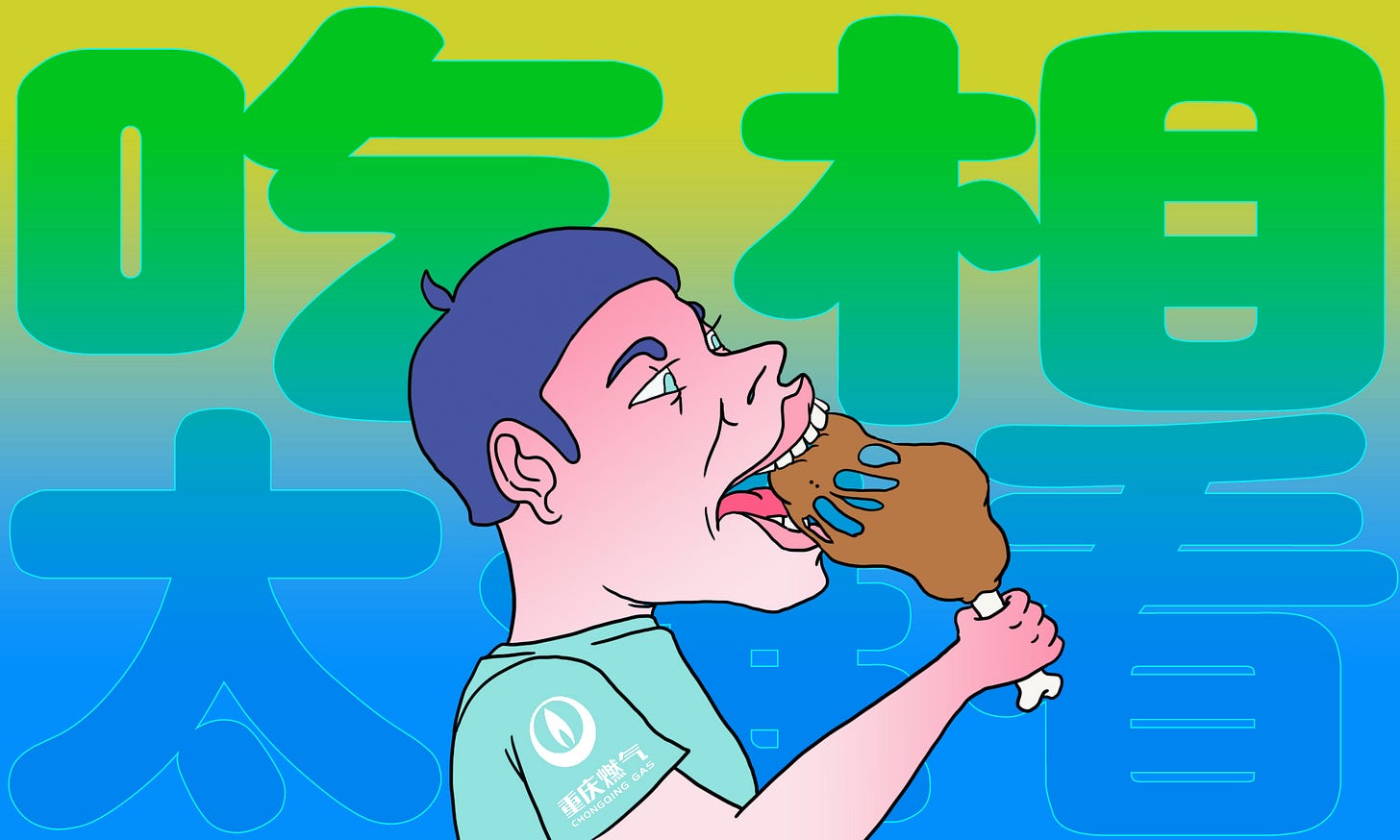"Shameless" — Phrase of the Week
State-owned energy provider in Chongqing over-charges customers

Our phrase of the week is: "shameless" (吃相太难看 chīxiàng tài nánkàn).
Context
Tens of thousands of residents in Chongqing and Chengdu have complained to the authorities about being overcharged for their gas since January this year.
Many residents also shared their exorbitant bills online.
On April 13, the local authorities in Chongqing announced the formation of a joint investigation group to probe the problem.
A week later, in a press conference held by the government on April 19, it was confirmed that Chongqing Gas Group Corporation (重庆燃气) had overcharged some residents for their gas.
The company was ordered to fully refund residents who were overcharged.
The customer backlash put the Chongqing government and Chongqing Gas in a difficult situation, forcing them to act:
With such a large number of complaints and such astonishing "consumption", if the gas company continued to insist there was no issue, not only will the company become a laughing stock, they will also seriously damage the local government's credibility.
In other words, it is precisely because of the gas company's "shameless rip-offs" that drew significant backlash from the public, and this "gas price assassin" has once again pushed the local authorities to the corner.
如此大量投诉,如此惊人的“消费”,燃气公司如果还坚持自己没问题,那不仅自己成了笑话,也将严重损害当地的政府公信力。换句话说,正是燃气公司的“吃相”太难看,让相关问题酿成舆论风波,而这种“燃气刺客”现象,又把当地官方逼到了“墙角”。
Rúcǐ dàliàng tóusù, rúcǐ jīngrén de “xiāofèi”, ránqì gōngsī rúguǒ hái jiānchí zìjǐ méi wèntí, nà bùjǐn zìjǐ chéngle xiàohua, yě jiāng yánzhòng sǔnhài dāngdì de zhèngfǔ gōngxìnlì. Huànjùhuà shuō, zhèngshì ránqì gōngsī de “chīxiàng” tài nánkàn, ràng xiāngguān wèntí niàngchéng yúlùn fēngbō, ér zhèzhǒng “ránqì cìkè” xiànxiàng, yòu bǎ dāngdì guānfāng bī dào le “qiángjiǎo”.
And with that we have our Sinica Phrase of the Week.
What it means
The phrase "shameless" translates directly as "eating appearance" (吃相 chīxiàng), "looks terrible" (太难看 tài nánkàn).
A common phrase in spoken and written Chinese, it’s an internet slang term which originally comes from the Shanghai dialect of Chinese, literally referring to someone who lacks manners, or looks unpleasant when eating.
In "old Shanghai", table manners, or how people ate (吃相 chīxiàng), was an important way to show one's social status. The phrase evolved in Shanghainese to refer to a person's behavior and demeanor in general.
The extended meaning in modern Chinese can refer to someone, or a company, or even a country, that acts without manners or breaks the rules, especially when it’s for their own benefit.
As an example, the phrase has been deployed by China’s wolf warrior diplomats in describing the US sanctioning of TikTok.
In describing how Chongqing Gas Corporation has overcharged its customers, we translate the phrase as "shameless".
Andrew Methven is the author of RealTime Mandarin, a resource to helping you learn contemporary Chinese in context, and stay on top of the latest language trends in China.
Read more about how this story is being discussed in the Chinese media in this week’s RealTime Mandarin.
Finally, for long-time Phrase of the Week connoisseurs, there’s also a reference to a previous Phrase of the Week in the Chinese paragraph: “assassins” (刺客 cìkè), which refers to a company overcharging customers.


